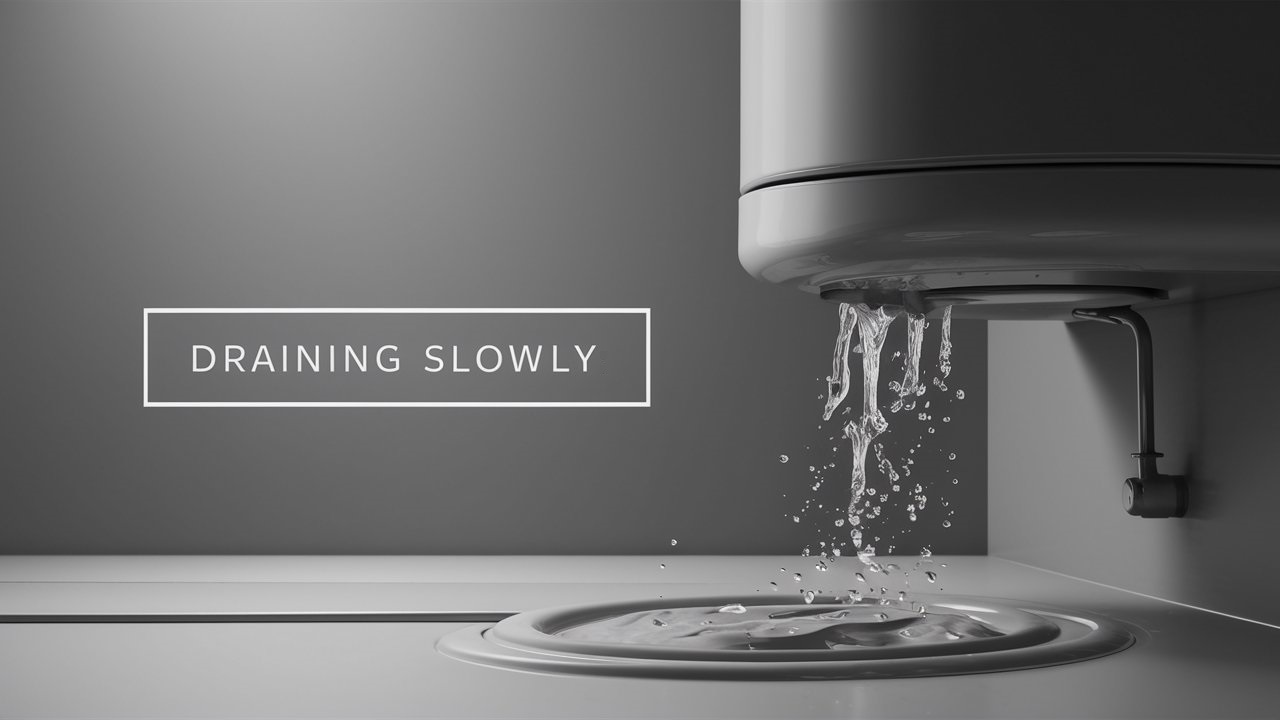Experiencing slow drainage from your water heater can be frustrating and indicative of underlying issues. When your water heater is not draining properly, it may be due to several factors that affect its performance. Common reasons for slow water heater drainage include:
- Sediment Buildup
- Clogged Drain Valve
- Water Heater Design and Age
- Water Pressure Issues
Understanding these issues can help you diagnose the problem causing slow drainage and take the necessary steps required to make your water heater drain faster again. Fixing these issues won’t just fix the slow drainage issue but will also improve the overall performance of your water heater and extend its lifespan.
1. Sediment Buildup
Sediment buildup is a common issue in water heaters, particularly in areas with hard water. Over time, minerals such as calcium and magnesium can accumulate at the bottom of the tank, forming a layer of sediment. This sediment can impede the flow of water, causing the heater to drain slowly. Additionally, sediment buildup can affect the efficiency of your water heater by insulating the heating elements, making them work harder to heat the water. Regularly flushing the tank to remove sediment can help maintain proper drainage and improve the efficiency of your water heater.
2. Clogged Drain Valve
The drain valve at the bottom of your water heater is designed to allow for the removal of sediment and other debris from the tank. If this valve becomes clogged or obstructed, it can significantly slow down the drainage process. Clogs in the drain valve can result from sediment accumulation, rust, or other debris that blocks the flow of water. To address this issue, inspect the drain valve for any blockages and clean or replace it if necessary. Ensuring that the drain valve is functioning properly can help facilitate faster and more efficient drainage.
3. Water Heater Design and Age
The design and age of your water heater can also impact its drainage capabilities. Older water heaters or those with outdated designs may have less efficient drainage systems, leading to slower drainage rates. Additionally, older units may be more prone to sediment buildup and other issues that can affect performance. If your water heater is quite old and draining slowly, it may be worth considering an upgrade to a newer model with improved design and efficiency. Newer water heaters often come with features that enhance drainage and overall performance.
4. Water Pressure Issues
Water pressure issues can affect the speed at which your water heater drains. Low water pressure can result from problems with the plumbing system, such as clogged pipes or insufficient water supply. When the water pressure is too low, it can cause the water heater to drain more slowly than usual. To address water pressure issues, check for any blockages or leaks in the plumbing system and ensure that the water supply is adequate. Adjusting the water pressure or repairing any issues in the plumbing can help improve the drainage rate of your water heater.
How To Make Your Water Heater Drain Faster?
To enhance the drainage speed of your water heater and ensure efficient operation, there are several effective measures you can take to improve the drainage rate and overall performance of your water heater:
Change the Water Heater’s Drain Valve
If the drain valve is causing slow drainage, replacing it with a larger or higher-quality valve can help. A bigger drain valve can alleviate water pressure issues and reduce the likelihood of clogs. Installing a new drain valve ensures better flow and more efficient drainage. Be sure to choose a valve that is compatible with your water heater model and follow proper installation procedures to ensure optimal performance.
Install a Water Filter
Installing a water filter can significantly reduce sediment buildup in your water heater. A water filter helps capture and remove minerals and debris from the water before it enters the heater, preventing accumulation at the bottom of the tank. By reducing sediment, you can enhance the drainage speed and overall efficiency of your water heater. Regular maintenance of the water filter is also essential to ensure it continues to function effectively and prevent issues related to sediment accumulation.


